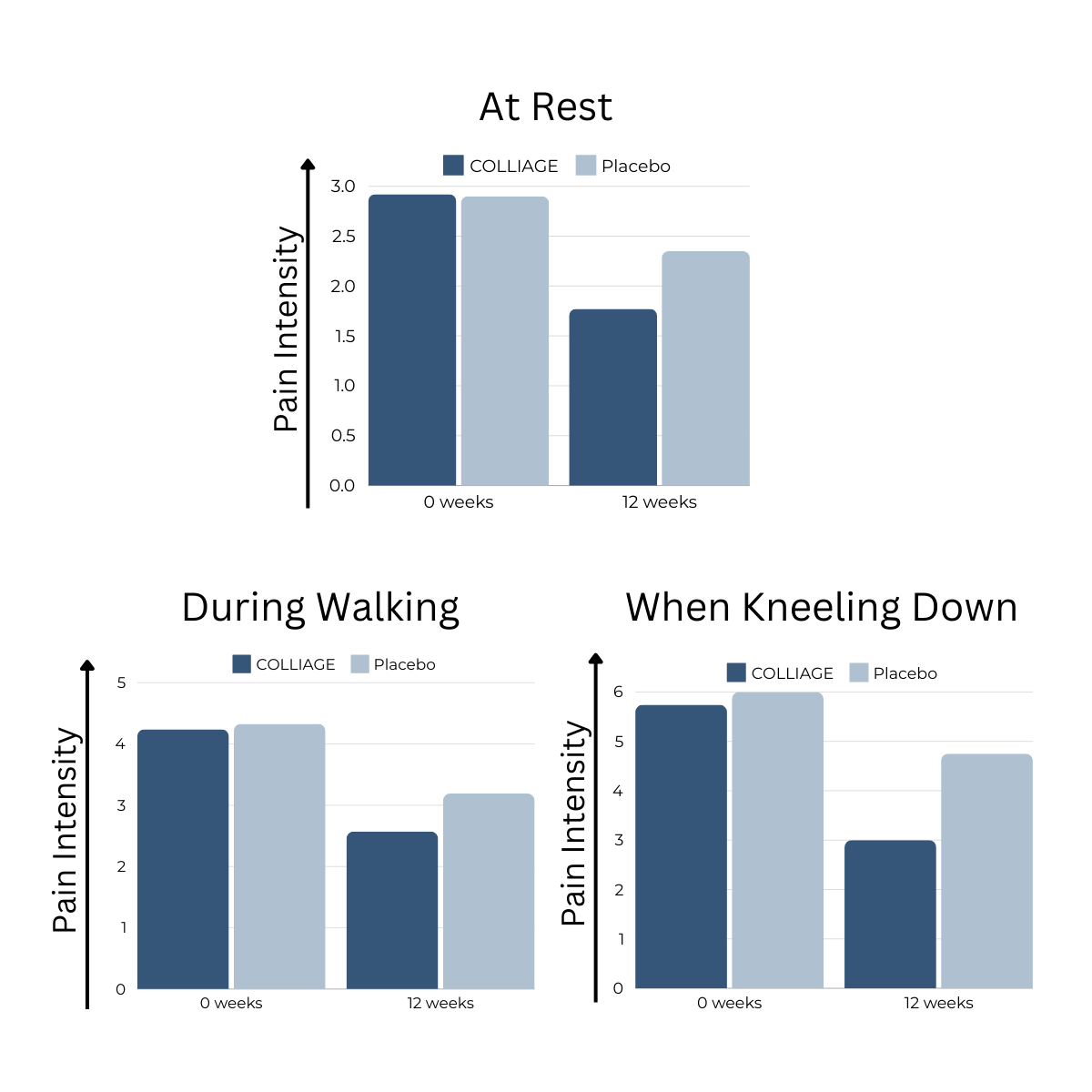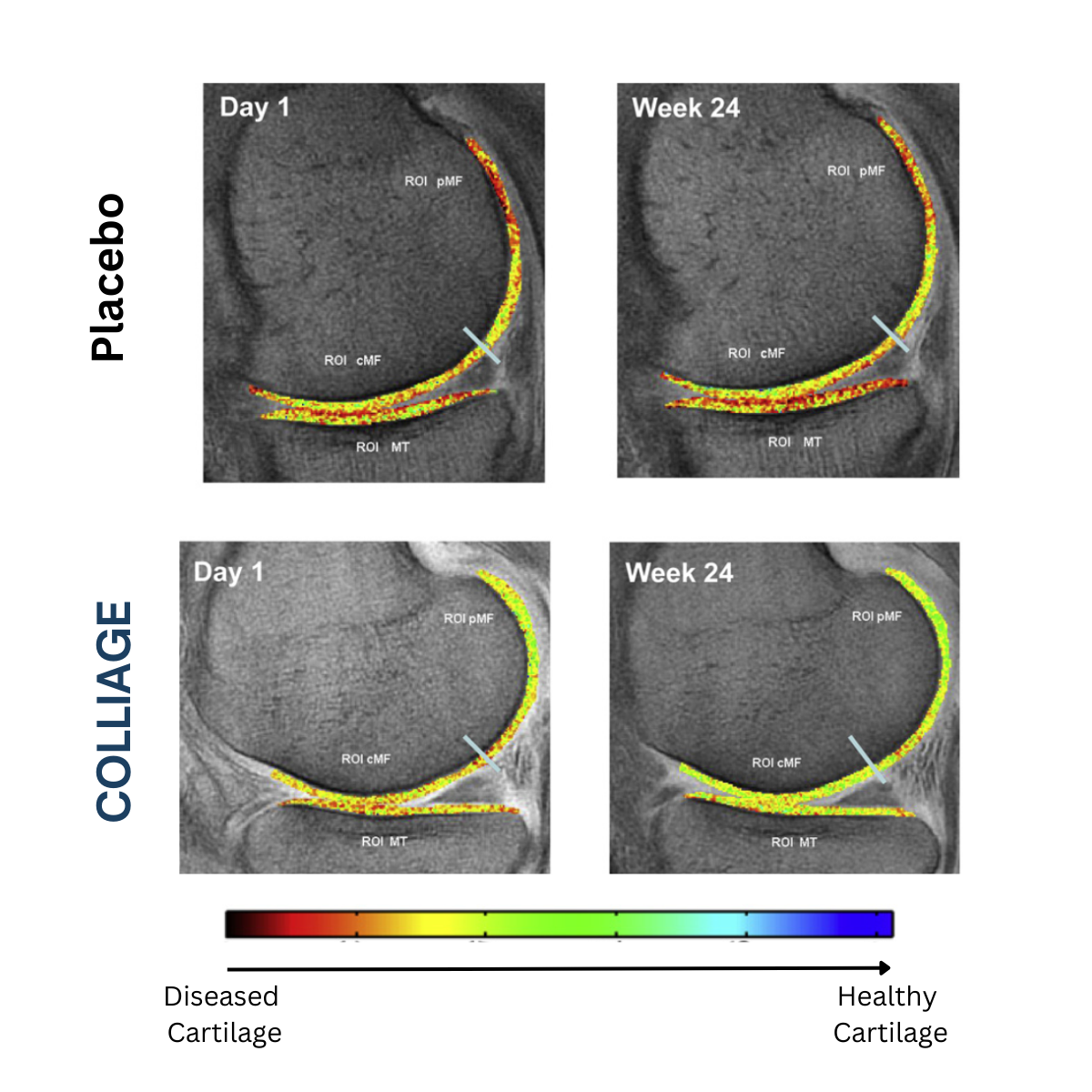The Most Researched Collagen Peptides for Joint Health

Clinically Proven to
Relieve Joint Pain
In a 12-week study, daily COLLIAGE supplementation significantly reduced joint pain during everyday activities like walking, climbing stairs, and squatting. (Schulze 2024)

Clinically shown to
Regenerate Joint Cartilage
In a groundbreaking study, daily supplementation with COLLIAGE showed significant cartilage regeneration in middle-aged athletes with knee and ankle injuries. (McAlindon 2011)



